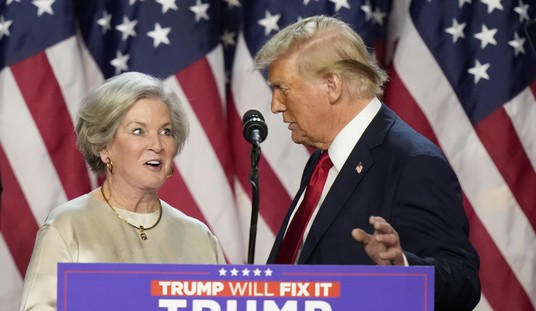In an extended exchange with Fox News Sunday anchor Chris Wallace, House Speaker Paul Ryan confirmed that he is seeking a series of changes to the American Health Care Act (AHCA) prior to this week's expected floor vote. Relatedly, Ryan also responded to a specific case study, as analyzed by the Congressional Budget Office, which showed a hypothetical lower-income consumer in his early 60's paying substantially more out of pocket under the GOP proposal than under Obamacare. Here's the clip, followed by a few thoughts:
Ryan's rebuttal to that particular CBO scenario -- and we've dealt with its overall analysis in some detail -- boils down to the arguments that (a) Obamacare is collapsing under its own weight, so drawing comparisons to an imploding law is therefore an pointless exercise, (b) once the Trump/Ryan plan is enacted, more options at various price points will organically spring up, and (c) CBO didn't take into account the second (or third) phase of Republicans' reform plan, which will further deregulate the market and drive down costs. The Speaker did acknowledge, however, that even with those elements factored in, he's convinced that more generous refundable tax credits are appropriate for certain demographic cohorts within the legislation. That significant adjustment is one of three proposed changes that Ryan effectively endorsed at the beginning of the interview.
The first two are versions of alterations to the Medicaid piece of the plan, which were requested by the conservative Republican Study Committee last week. The third is boosted spending on tax credits for near-seniors in lower income brackets. The former items would help satisfy some conservatives, and likely lower the price tag of the overall bill. The latter item addresses a serious political and policy concern raised by moderates from tougher districts, but it will increase the proposal's cost. Remember, for this reconciliation package to be viable, it must comply with its deficit-reduction instructions, so Republicans must remain mindful of that constraint. The potentially significant tweak on the tax credits is an update that some conservative health policy wonks have been calling for. Here's Avik Roy writing at Forbes over the weekend:
Recommended
I wrote last weekend about the steep benefit cliff that the American Health Care Act creates for people striving to cross the poverty line and transition from Medicaid to the AHCA’s system of tax credits. That problem is related to a second problem: the significant reduction in financial assistance that the AHCA offers to the working poor and lower-middle class, especially as Americans age...The AHCA's tax credits are already adjusted for age. But they also need to be adjusted to help lower-income individuals transition from Medicaid to the private market. Notably, Section 202 of the AHCA contains a formula—meant as the transition from Obamacare to Ryancare—that actually represents the right mix of age- and means-testing. Under the Section 202 formula, tax credits kick in after premiums in a specific location exceed a certain percentage of one's income. Section 202 also adjusts these percentages by age, so that the elderly get the right amount of support. By structuring the credits to kick in when premiums exceed a certain percentage of one's income, Section 202 also accounts for geographic variability in insurance premiums.Roy also advocates the institution of a standard tax deduction for the purchase of health insurance. He concludes that in spite of a bumpy roll-out, the AHCA is improving, thanks to ideas from Republican lawmakers at both ends of the center-right ideological spectrum. But at the risk of entering 'broken record' territory, despite some of the better projections for younger Americans in the data,
As ever, the challenge for Republican leaders, including the president, is that cajoling rank-and-file members into voting 'yes' isn't merely a matter of offering concessions to one wing of the party. Two wings of the party, often with very different priorities and policy goals, need to be brought into the fold. It's a tightrope walk. On Martha MacCallum's Friday evening program, I hailed President Trump's strong leadership on this front thus far. Despite his tumbling approval rating in several recent polls, he remains quite popular among Republicans, especially conservative Republicans. Trump can leverage that popularity by strategically pinpointing states and districts represented by members of either party who may oppose his plan. A new Pew Research survey shows Trump's favorability underwater on a number of leadership and personal characteristics, but
60% of Americans say President Trump keeps his promises & 54% say he is able to get things done https://t.co/YWUWH6M2n8 pic.twitter.com/AEXKzvexlA
— Pew Research Center (@pewresearch) March 19, 2017
Repealing and replacing Obamacare is one of the biggest promises he and the Republican Party have made to voters. They've been rewarded with massive electoral success since 2009. Will they get this done? Stay tuned for Thursday's scheduled vote, which represents an absolutely crucial test. And as a reminder, Democrats -- who are solely to blame for the wilting status quo -- offer no new or constructive contributions to this discussion whatsoever, aside from baselessly fear-mongering about how repealing Obamacare would kill people.

























Join the conversation as a VIP Member